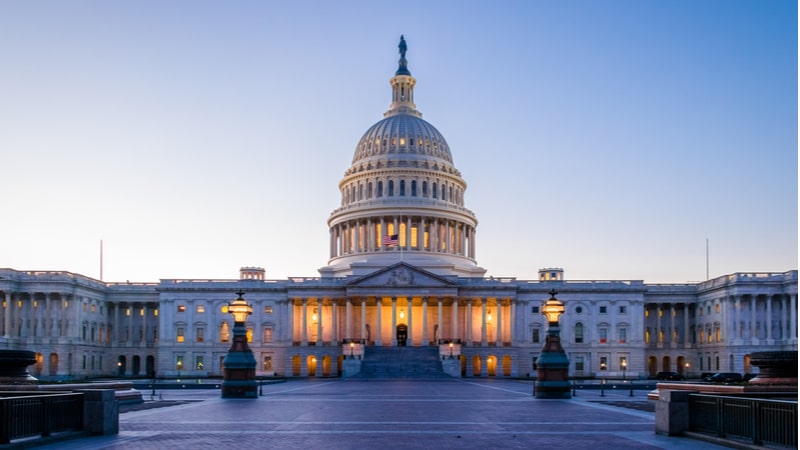
Members of Congress and state lawmakers are urging congressional Republicans to drop their plans to add language to the National Defense Authorization Act (NDAA) that would place a moratorium on state-level laws regulating artificial intelligence (AI).
As Republican members of Congress consider a pause on state AI laws, Democrats and more than 280 state lawmakers – including some Republicans – are warning that such an effort would hamstring protections passed by states to create more responsible AI use and deployment.
House Majority Leader Steve Scalise, R-La., told Punchbowl News that he’s considering adding a moratorium to the NDAA, which authorizes defense spending and policy. The move would renew debate over AI regulation after Republicans’ 10-year moratorium included in a government spending bill failed in the Senate on a vote of 99-1.
A group of 81 Democratic representatives, led by Rep. Doris Matsui, D-Calif., wrote to congressional leadership on Wednesday, warning that trying to “revive the same flawed policy in the NDAA, or through executive action, is an attempt to quietly jam through an idea that has already been rejected, as well as sidestepping public debate and bypassing the regular committee process.”
Meanwhile in the Senate, Sens. Ed Markey, D-Mass., and Elizabeth Warren, D-Mass., wrote in a letter to their Democratic colleagues last week that, “If included, this provision would prevent states from responding to the urgent risks posed by rapidly deployed AI systems, putting our children, our workers, our grid, and our planet at risk … Senate Democrats should stand united and commit to opposing the NDAA, which is likely to include a number of other poison pills, if it includes the AI moratorium.”
State legislators and Democrats, along with some Republicans such as Rep. Marjorie Taylor Greene, R-Ga., have said that state laws protect children and teenagers, combat deepfakes, address the environmental impacts of data center buildout, prevent algorithmic discrimination, and safeguard workers.
An AI moratorium would “abruptly cut off active democratic debate in statehouses and impose a sweeping pause on policymaking at the very moment when communities are seeking responsive solutions,” state lawmakers wrote in a letter addressed to members of the Senate and House.
“States serve as laboratories of democracy, directly accountable to their residents, and must retain the flexibility to confront new digital challenges as they arise,” state lawmakers wrote. “And as AI evolves rapidly, state and local governments may be better positioned than Congress or federal agencies to respond in real time. Freezing state action now would stifle needed innovation in policy design at a moment when it is most needed.”
During the 2025 legislative session, all 50 states, Puerto Rico, the Virgin Islands, and Washington, D.C., introduced AI-related legislation, and 38 states adopted or enacted about 100 laws, according to the National Conference of State Legislatures.
Currently there are no federal regulations on AI development and deployment, and Republicans have largely pushed for limited restrictions, citing concerns that too stringent laws would inhibit innovation.
President Donald Trump reiterated his support for an NDAA moratorium, posting to Truth Social last week, “We MUST have one Federal Standard instead of a patchwork of 50 State Regulatory Regimes. If we don’t, then China will easily catch us in the AI race. Put it in the NDAA, or pass a separate Bill, and nobody will ever be able to compete with America.”
Beyond limiting innovation, Trump also claimed that state AI laws are in some cases promoting “censorship,” writing that “some States are even trying to embed DEI ideology into AI models, producing ‘Woke AI.’”
State lawmakers have said that their laws “strengthen consumer transparency, guide responsible government procurement, protect patients, and support artists and creators.”
In Congress, Warner and Warren said, “Democrats have direct control over whether the AI moratorium is enacted into law,” adding that “we respectfully urge you to join us in opposing any version of the NDAA that includes the AI moratorium.”
